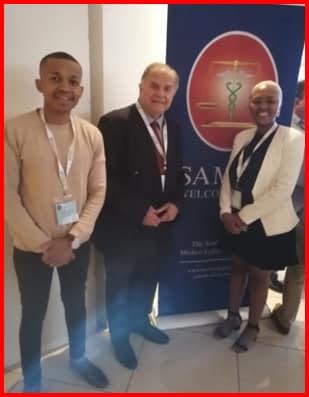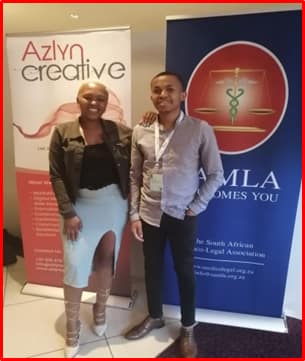SAMLA MEDICO- LEGAL WORKSHOP:
MEDIATION AS AN ALTERNATIVE DISPUTE RESOLUTION MECHANISM TO LEGAL PROCEEDINGS (10 March 2020)
 SAMLA
SAMLA
The South African Medico-Legal Association (“SAMLA”) is a Non-Profit Company governed by its own memorandum of incorporation and code of conduct. SAMLA’s objectives and mission statement are to, inter alia, advance “the relationship between medicine and law and to promote excellence in the medico-legal practice, by promoting dialogue and mutual understanding between members of the involved professions.”
RULE 41A
On the 13th of December 2018, the Deputy Chief State Law Advisor and secretary to the Rule Board for Courts of Law (Rules Board), Mr R. Daya, released a statement advising of the Rules Board’s intention to introduce into the Uniform Rules, a Rule to regulate the procedure for referral to mediation of cases in the High Court and requesting comments thereto. This Rule came into effect as of the 9th of March 2020.
The new Rule, Rule 41A Mediation as a Dispute Resolution Mechanism contains the following provisions:
a) to require the parties, when issuing a summons or application or delivering a plea or answering affidavit, to indicate whether they consider mediation to be possible or not and to give reasons for either consideration;
b) the parties are to deliver a joint minute recording their agreement to refer the dispute to mediation;
c) the suspension of time to deliver pleadings whilst mediation is in progress;
d) the procedure where multiple parties are involved in the litigation and some parties proceed to mediation, whilst others do not;
e) the admissibility and confidentiality of documents;
f) a joint minute indicating the outcome of mediation proceedings; and
g) costs of the mediation proceedings and cost orders.
The Rules Boards for Court of Law introduces into the Uniform Rules, a Rule to regulate the procedure for referral of mediation cases in the High Court. The new Rule 41A is intended to facilitate mediation contemplated by the parties or recommended by the court and to provide the procedure for referral to mediation in terms of Rule 37 (6) (d) (Pre-trial Conference) and Rule 37A (10) (Judicial Case Management).
In terms of the Rule mediation is the process by which a neutral and independent person, the mediator, assists the parties to resolve the dispute between them by facilitating the discussions between the parties, assisting them in identifying issues, clarifying priorities, exploring areas of compromise and generating options to resolve the dispute.
MEDIATION WORKSHOP:
On the 5th and the 16th of November 2019, SAMLA facilitated a workshop with the purpose of training medico-legal practitioners to understand the nature and benefits of mediation in the resolution of medical disputes.
The training included lectures, interactive discussion, a mock – mediation demonstration, a golden thread lecture on the ethics of mediation and litigation and an assignment to write on an anonymised mediation case study based on an actual clinical negligence dispute or personal injury dispute.
COMMENTS / PERSONAL EXPERIENCE:
Mediation
The South African legal profession and the courts today are faced with a crisis. The courts are unable to allocate trial dates and dispense with matters timeously – because of the influx of legal disputes referred to court litigation. Efforts have been made by various associations and organisations, including SAMLA, to reduce the harm associated with this crisis.
We have an influx of cases within our courts resulting in some matters taking time to reach a judgement or conclusion. Mediation is a paradigm shift. It promotes Ubuntu and Zenzele. It transforms the way in which South Africans resolve conflict and disputes.
SAMLA, in its Guidelines and Protocol for Medical Mediation, recognises mediation as “crucial and central element of any viable solution” to the crisis with which we are faced. Mediation, in its nature, is an informal, engaging, confidential and cost effective method of dispute resolution. Mediation allows parties to efficiently and confidentially reach a mutually satisfactory resolution.
Mediation has attracted various stakeholders, including the state, private health sector, health insurance industry and victims of medical-clinical malpractice as a more viable solution than court litigation.
 The mediation workshop was truly eye opening taking into account that mediation is not something that is vastly taught within the content of the LLB Degree. We are always taught of litigation and we grow into practice thinking all cases should have a winning and a losing party.
The mediation workshop was truly eye opening taking into account that mediation is not something that is vastly taught within the content of the LLB Degree. We are always taught of litigation and we grow into practice thinking all cases should have a winning and a losing party.
In the near future, it is predicted that more persons will opt for mediation than court litigation for the above mentioned reasons, which will of course raise the demand for trained and qualified mediators. SAMLA holds a database for trained and qualified mediators who subscribe to the ethical codes and standards of SAMLA.
As SABWiL Alumni we are grateful for the experience provided by SAMLA. We have gained invaluable knowledge from the workshop. We also wish to extend our gratitude to Genoa who sponsored our attendance. Genoa Underwriting Managers are niche-market liability specialists who pride themselves on offering innovative insurance solutions to well-established client base. Genoa supported the initiative by SAMLA and decided to sponsor SABWiL Alumni. Last but not least, we wish to extend our gratitude to SABWiL. This diligence and zeal towards the development and upliftment of South Africans, Blacks and Women in Law is humbling.
Authored by:
Boitumelo Nqai – SABWiL Alumni Inaugural Deputy President, and
Sbusiso Mahlangu – Alumnus
Igama Lamakhosikazi Malibongwe!